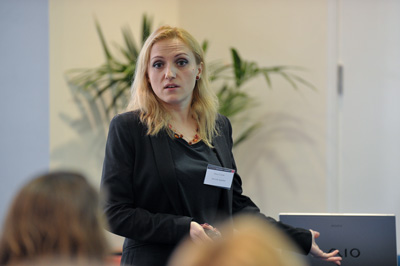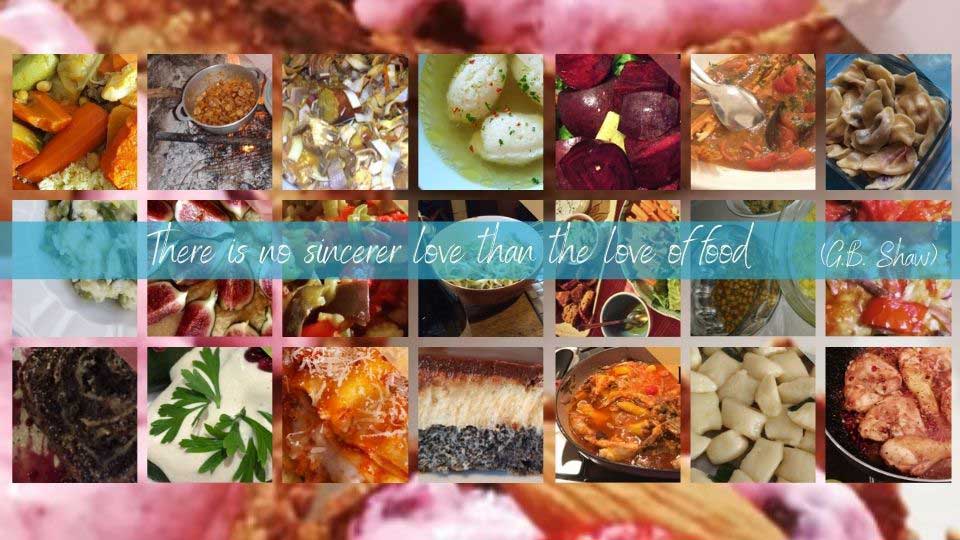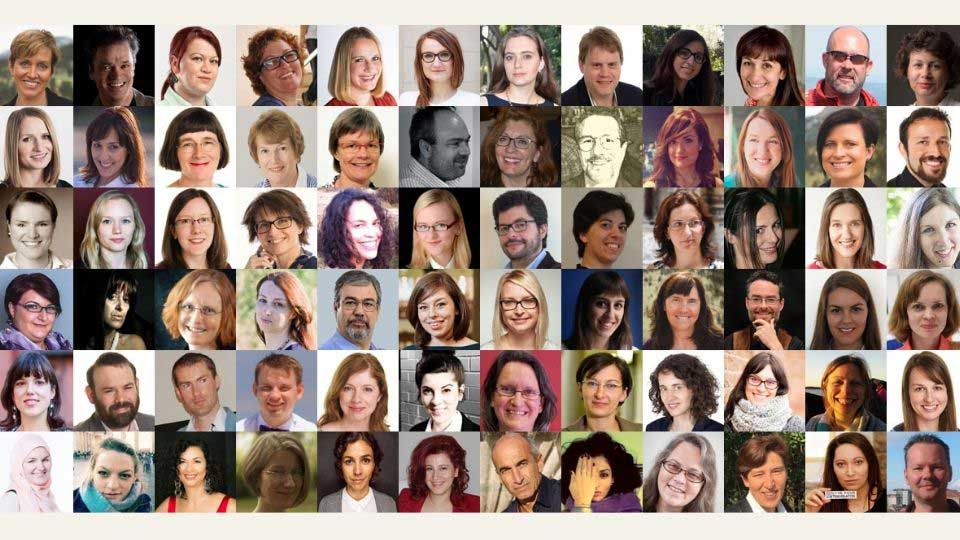
Continuing professional development: 5 tips for linguists


Working as a professional linguist is a never-ending learning process. If you are specialised in a sector which is constantly developing, such as IT, you will need to keep up with the most up-to-date vocabulary. You also need to be familiar with and implement the latest technology as required.
The language services industry is very different from what it was barely 20 years ago. I simply cannot imagine working as a translator without some sort of computer-assisted translation (CAT) software, online dictionaries, proofreading and editing tools, productivity tools etc. They save you a lot of time and you become more efficient.
Our Freelance Translator Survey 2020 revealed that 90% of freelance translators undertake continuous professional development (CPD), with 19% of them (myself included) doing more than 60 hours every year.
But what counts as CPD? What should you do to stay up to date? There is no secret, here is what I do:
1. Read, read, read

Books
Nowadays, getting your hands on a book is easier than ever. You can buy it with one click, and, if you are a Kindle fan like me, you’ll be able to start reading it immediately. The most comprehensive repository of books is Amazon. There is a wide selection either in paperback or electronic format. I personally prefer reading books on my Kindle as it is easy to carry and you can have hundreds of books available at a time, not to mention that many times they are cheaper than the classic variant. Another positive aspect is that you save some trees, and helping the environment is one of our agency’s missions.
When it comes to the topic of translating and interpreting, there are a lot of books on the subject. A curated list of books for translators and interpreters has been put together by Translation Journal and another excellent one can be found on Nikki Graham’s blog.
Blogs
If you are reading this, chances are you are interested in reading translation-related posts. Blog posts from fellow translators and interpreters are a treasure trove of tips and practical advice to help you in your career.
Here is a selection of some blogs I enjoy reading:
A Smart Translator’s Reunion – a blog by Catharine Cellier-Smart; I absolutely love her monthly ‘Around the web’ series.
Signs & Symptoms of Translation – Emma Goldsmith’s blog, a wonderful resource for SDL Trados tips, medical terminology, and more
My Words for a Change – Nikki Graham blogs regularly on several topics of interest for translators
janeishly – It’s a pleasure to read Jane’s musings; no matter what she writes about, her writing is simply beautiful.
About Words – A blog from Cambridge Dictionary. Need I say more?
There are many, many more amazing blogs, and making a list is not the purpose of this post.
Articles in industry magazines
If you are a member of a professional body, you most likely will receive a copy of their publication for members, as most organisations have one:
The Linguist published by the Chartered Institute of Linguists (CIOL)
ITI Bulletin from the Institute of Translation and Interpreting (ITI)
ATA Chronicle from the American Translators Association (ATA)
Linterna del Traductor from the Spanish Association of Translators, Copyeditors, and Interpreters (Asetrad)
MDÜ magazine from the Federal Association of Interpreters and Translators (BDÜ)
Articles, blogs, and books in your specialist field
Apart from anything translation-related, it is equally important to be up to date in your chosen specialist fields.
2. Write, write, write
Blogging is one way to practise and hone your writing skills. If you get involved and start writing, you will make a lot of friends. Sharing your experiences (good or bad) will help the community and you personally.
While I have been less active on this blog in the last couple of years, and so have been a lot of other people in our profession, I noticed that I still enjoy reading translation blogs. Moreover, there is always something interesting to learn.
Nikki Graham ran a very interesting survey on the topic which showed that blogs are the preferred place for respondents to get information on translation and/or interpreting (72.8%).
Do you have a blog? How often do you write? I’d love to hear from you.
Of course, blogging is definitely not the only medium for writing. Writing articles for industry magazines and publications is a great way not only to teach others, but also to learn yourself.
3. Attend conferences or events
Language events
It is sometimes hard to admit it, but there will always be someone better than you are. The good news is that they will share their knowledge at different events, so why not take advantage of it?
While the offline, in-person events are put on hold at the time of updating this post (and I think back with nostalgia to those times when networking and meeting colleagues was a thing), we are spoilt for choice – and sometimes overwhelmed – when it comes to the many online events organised by people in our profession. If there is a silver lining to everything being online, it’s the fact that we can now attend events taking place on the other side of the globe while saving money on travel.
Here are some of the best events that I can recommend:
BP Translation Conference (BP stands for Business Practices for Badass Polyglots)
The Translation and Localization Conference which takes place in Poland (a bit biased, as that was the first conference I attended as a speaker)
The series of events from the Chartered Institute of Linguists

Specialist field events
As with the reading and writing above, going to events in your specialist field will help you not only deepen your knowledge, but also connect with potential clients attending them.
4. Travel
Let’s say for example that your source language is French, and you are an English native. Why not plan your holiday in France? Even if you have been there before, there are lots of places you could see. Getting in touch with locals boosts your vocabulary with new idioms used by the real experts. And, of course, you will enjoy the fantastic food and wine! Bon appétit!
Given the current situation (we’re still in the middle of a pandemic at the time I am writing this), travel is something we can only dream about for the time being. On the other hand, I am sure that once it’s safe to do it again, most of us will take advantage of this.
Where will you go first?
5. Attend courses
Even if you are not a beginner, attending courses on the topic of translating and/or interpreting, as well as (you know what I am going to say, don’t you?) courses in your specialist areas can improve your expertise.
Some are free or very affordable, others may be costly, but the benefits in the long run should definitely weigh more.
The ITI has two online courses for translators: Setting Up as a Freelance Translator and Advancing your Freelance Translation Career.
Now over to you! How much time do you invest in continuing professional development? What’s your favourite form of CPD?



5 Comments
Greetings Alina. I also am passionate aboout learning Languages. I currently speak Portuguese (Native), English (C2 level), French, Spanish and German (C1 level), Dutch (B1-2), and am learning Russian.
At the youhg of 54, I am doing a MA Translation and wishing to establish myself at Medical Translation.
Perhaps we can meet,..
Hi Victor, now that is a great example of dedicating oneself to continuous learning and professional development!
Take into account that I am not a linguist, actually I a an almost retired 54 year-old physician! LOL…
But then again, I do my medical CME in Spanish and English, and read studies in French and German too.
Talk about killing two birds with the same stone.
Who knows we can anytime Skype?
This is a great route to specialisation in fact.
Quite an unusual one, to be sure…
As I finish this MA translation at OU (which, by the way, was where I came to know your interesting blog), I am looking forward to establish myself in the theoric-scientific branch of Medicine, retire and then keep my intellectual activities from somewhere (either an office or a home-office), then establish a small group of cooperative translators, either using a cooperative-based structure or another kind of small business.
Continuing Education, both in Languages and in Healthcare, is therefore something I think of as a “must-have”.
So I am thinking of that process not so much as a specialisation than as a way to “renew my life” or “self-tasble-turning” – i.e., I mean to keep working in Medicine while exersising my passion for learning languages.
And then again, one more thought, for you and your readers: Neurology Medicine and Functional MRI have produced enough evidence to state that the activity of learning (and exercising) a new Language (orelse, a musical instrument) is a potent stimulator of Neuroplasticity (a concept that is related to the ability of neurons to interconnect) around multiple brain’s centers. That means also a strong way to prevent most of the dementias.
Remember, I am 54…
Hope I’ve got you all interested.